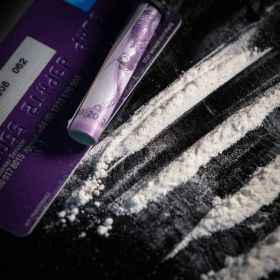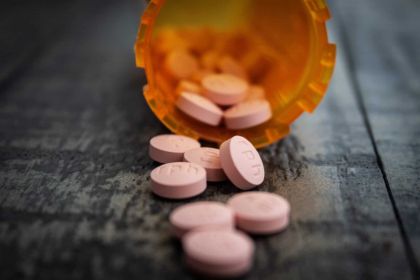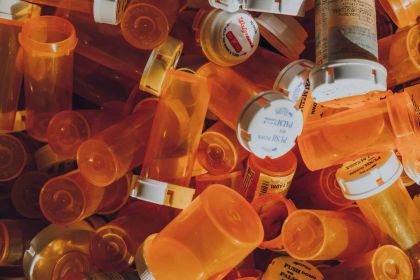Drug Addiction Rehab Treatment Programs and Recovery Center in Los Angeles, California
Treatment Options for Drug Addiction Rehab in Los Angeles
Use this resource to educate yourself about drug addiction and to see if you or somebody you know might be affected by this malicious disease.
More than 20 million Americans will use an illegal drug in any given month if you count marijuana in this group. Some are addicted, and some aren’t, but the point is you’re playing with fire anytime you take a mind- or mood-altering substance, legal or illegal. Drug addiction usually implicates heroin/opioid, cocaine, and meth users, but there are several other substances on both the black and pharmaceutical markets that lead people to addiction. Harmony Place offers drug addiction treatment in Los Angeles, California to help combat addiction.

Free Drug Addiction Assessment
How are Drug Addictions Treated at Harmony Place in LA?
Drug addiction is not easy to overcome, and it’s even tougher the longer you’ve been on drugs and the harder the substance you’ve used.
Addiction is a chronic condition and is considered to be a relapsing disease, meaning that while it can be treated, it is never completely cured. Just like people who suffer from chronic diseases like heart disease or diabetes, those who struggle with addiction must commit to lifelong changes to manage their disease. It usually takes professional guidance and months of formal addiction therapy to learn how to do this.
Most types of drug addiction require detox treatment, which should be done in a professional setting. After completing detox and outlasting acute withdrawal, the individual should go through various stages of formal addiction treatment, including:
-
Detoxification
-
Residential Inpatient
-
Partial Hospitalization
-
Intensive Outpatient
-
Outpatient
-
Aftercare
Many drug treatment programs include individual and group therapy, as well as educational sessions and holistic or complementary services (such as yoga, meditation, nutritional guidance, etc.). It’s not uncommon for individuals to relapse during or after this process, so they may have to make several attempts before truly committing to sobriety.
Drug Addiction Rehab Treatment Programs in Los Angeles, California
At Harmony Place, we are dedicated to providing compassionate, supportive, and empowering care for individuals struggling with drug addiction. Our drug addiction rehab treatment center in Los Angeles offers a comprehensive range of services designed to help you reclaim your life from the grips of addiction. Our team is committed to walking alongside you on your journey to recovery, ensuring you receive the highest quality care tailored to your unique needs.
Drug Detox Center in LA
The first step in overcoming drug addiction is detoxification. Our drug detox center in Los Angeles provides a safe and medically supervised environment where individuals can begin their recovery journey. Detoxing from drugs involves managing withdrawal symptoms, which can be challenging and uncomfortable. With professional care, this process becomes more manageable, allowing for a smoother transition into further treatment.
At our Los Angeles drug detox facility, experienced medical staff monitor patients around the clock to ensure safety and comfort during withdrawal. Utilizing evidence-based practices, we aim to alleviate the physical symptoms of withdrawal, laying a strong foundation for the next stages of recovery. This critical phase prepares individuals for continued treatment, setting them on the path to long-term sobriety.
Residential Drug Addiction Treatment
For those needing intensive support, our residential drug addiction treatment program offers a structured and immersive environment. Situated in a serene setting, our facility provides 24/7 medical supervision, therapeutic interventions, and a supportive community dedicated to recovery. This program is ideal for individuals with severe addiction who require a high level of care and support.
Our residential treatment includes personalized therapy sessions, group counseling, and holistic wellness activities. By addressing the physical, emotional, and psychological aspects of addiction, we help clients develop the skills and resilience needed for lasting sobriety. The nurturing environment at our drug rehab center in Los Angeles ensures that each individual receives the attention they need to thrive on their recovery journey.
Outpatient Drug Addiction Treatment
Outpatient drug addiction treatment offers flexibility for individuals who need to balance recovery with daily responsibilities such as work or family commitments. Our outpatient programs in Los Angeles provide structured support without requiring clients to stay at the facility. This option is suitable for those with mild to moderate addiction or those transitioning from inpatient care.
Clients in our outpatient drug treatment program attend scheduled therapy sessions, support groups, and medical check-ups while living at home. This structure allows individuals to apply coping strategies in real-time while still receiving professional guidance. Our goal is to provide continuous care that fits seamlessly into their lives, ensuring they remain connected to their recovery community and supported in their journey toward sobriety.
Drug Addiction Counseling and Therapy
Counseling and therapy are vital components of effective drug addiction treatment. At Harmony Place, we offer a range of personalized counseling and therapy services tailored to address the psychological aspects of addiction. Through individual and group therapy sessions, clients explore the root causes of their addiction and develop healthier coping mechanisms.
Our therapists use evidence-based approaches like cognitive-behavioral therapy (CBT) and motivational interviewing to help clients navigate the complexities of addiction and recovery. Group therapy provides a supportive space for individuals to share their experiences and learn from others facing similar challenges. These therapeutic modalities are essential for building resilience and fostering a deeper understanding of one’s recovery journey.
Medication-Assisted Treatment (MAT) for Drug Recovery
Medication-Assisted Treatment (MAT) combines FDA-approved medications with counseling and behavioral therapies to support recovery from drug addiction. At Harmony Place, our MAT program in Los Angeles is designed to help manage cravings, reduce the risk of relapse, and enhance the effectiveness of traditional therapeutic methods.
By integrating MAT into our drug recovery program, we provide a comprehensive framework that addresses both the physical and mental aspects of addiction. Medications used in MAT help stabilize brain chemistry and alleviate some of the most challenging aspects of withdrawal and cravings. When combined with ongoing therapy and support, MAT offers a robust pathway to sustained recovery. Our dedicated team ensures that each client receives a personalized MAT plan tailored to their needs, promoting long-term success in overcoming drug addiction.
Holistic Drug Recovery Treatment Los Angeles
At Harmony Place, we embrace a holistic approach to drug recovery that addresses the mind, body, and spirit. Our holistic drug recovery treatment in Los Angeles incorporates a variety of wellness activities designed to complement traditional therapeutic methods. These activities include yoga, meditation, nutritional counseling, and fitness programs, all aimed at promoting overall well-being.
Holistic treatment recognizes that recovery is about more than just abstaining from substances; it’s about achieving a balanced and fulfilling life. By integrating holistic practices into our treatment plans, we help clients develop a deeper connection to themselves and their recovery journey. This comprehensive approach empowers individuals to embrace long-term sobriety and build a healthier, more satisfying life free from addiction.
Understanding Drug Addiction Rehab
While the decision to take drugs for the first time is usually a voluntary one, many people don’t understand how some people end up as addicts and others don’t. It’s not a matter of choosing to quit but a much more complex problem that is rooted in each person’s individual brain chemistry.
Drugs affect the sections in your brain that are known as the “pleasure centers” that, when activated, control feelings of pleasure and reward. Your brain naturally releases chemical messengers (known as dopamine) to stimulate these pleasure centers, and most drugs mimic the rush of euphoria that dopamine delivers.
The problem is that the drugs overstimulate the reward feelings, and the intense gratification is something that can only be replicated with continued drug use. This leads to two problems:
- The body and brain develop a tolerance to the dosage, meaning that the addict has to constantly increase the amount they take to achieve a high.
- Because the drug is providing the brain with a constant flow of chemicals, it stops producing its natural feel-good chemicals, resulting in a crash when the effects of the drug have worn off.
Heavy or long-term drug use can cause a variety of changes in your brain, not only impairing your ability to quit but eventually leaving you with irreversible damage to your memory and nervous system.

Free Drug Addiction Assessment
We are an in-network provider with Anthem, First Health Network, Multi-Plan, Beacon, HMC, Humana, Aetna
Can Anyone Become Addicted to Drugs?
Drug addiction truly can impact anyone from any background – financial status, race, age, geographic area, educational level…you name it. Although, certain circumstances put individuals more at risk of drug addiction than others.
Several factors contribute to whether a person becomes addicted to drugs, and usually, it is difficult to pinpoint just one. However, a combination of some of the following risk factors may influence who becomes addicted:
About half of your risk for addiction can be found in your genes, including your ethnicity, gender, family history and presence of mental disorders.
Influences from family and friends, economic status, trauma, lifestyle, stress and parental involvement can all have a powerful effect on whether you use or become addicted to drugs.
While both nature and nurture strongly influence your choices, they can also negatively affect physical development. There is no age limit for drug abuse, but if you start taking drugs at a younger age, there is a higher likelihood that it will turn into an addiction.
This is because the sections of the brain responsible for self-control, judgment, and decision-making are not fully developed in teens, making them more prone to trying drugs and engaging in other risky behaviors.
Does Insurance Cover Rehab Treatment for Drug Addictions in Los Angeles, CA?
Yes, insurance often covers drug addiction rehab, though the extent of coverage can vary depending on your specific policy and provider. In California, many health insurance plans include coverage for substance abuse treatment due to regulations like the Affordable Care Act (ACA) and the Mental Health Parity and Addiction Equity Act (MHPAEA). These laws ensure that insurers provide comparable coverage for mental health and substance use disorder services as they do for other medical conditions. Some prominent health insurance providers in California offering coverage for substance addiction rehab include Anthem Blue Cross, Kaiser Permanente, Blue Shield of California, Health Net, and Cigna health insurance.
At Harmony Place, we understand that navigating insurance benefits can be a complex and stressful process. Our compassionate admissions team is here to help you verify your coverage and explain the specifics of your plan. We work closely with your insurance provider to maximize your benefits, allowing you to focus on your recovery journey without the added worry of financial constraints.
How Much Does Drug Addiction Rehab Cost Without Insurance Coverage in Los Angeles, CA?
The cost of drug addiction recovery treatment without insurance can vary widely based on the type and length of the program. On average, daily rates for inpatient rehab range from $500 to $1,000, while a standard 30-day treatment program may cost between $15,000 and $30,000. Outpatient programs are generally more affordable, with costs typically ranging from $100 to $500 per session, depending on the level of care required.
Investing in professional treatment is a critical step towards achieving lasting recovery and overall well-being. At Harmony Place, we are committed to making treatment accessible to everyone in need. To support this, we offer various payment plans and financial assistance options to help ease the financial burden. Our goal is to ensure that cost does not become a barrier to receiving the high-quality care necessary for a successful recovery journey.
Additional Resources
Request a 100% Confidential Callback
FAQs About Drug Addiction & Treatment
Still have questions about drug addiction? See if we’ve got your answer here:
Drug addiction is a brain disease that is characterized by the addict compulsively seeking out drugs despite knowing the inevitable negative consequences. It is defined as such because of the way that drugs affect and change the brain, in both structure and function.
These brain changes can be temporary, long-lasting or even permanent – depending on the drug, the severity of the addiction and the length of use – and can lead to a wide variety of dangerous and destructive behaviors.
The American Psychiatric Association classifies addiction – or substance use disorder, to be specific – as a mental health disorder. The following symptoms are associated with substance use disorder:
- Impaired control
- Social impairment
- Risky use
- Increased tolerance
- Withdrawal symptoms when trying to cease use
In some cases, drug addiction can cause irreparable damage to the users body, even if he or she completes drug rehab and maintains sobriety. Although the health effects will differ from drug to drug, common long-term effects of addiction include:
- Organ damage
- Memory loss
- Paranoia
- Gastrointestinal disease
- Mood swings or depression
- Social anxiety
- Irregular sleeping patterns
- Tooth damage or decay
The most common controlled substances in circulation in the United States include:
- Marijuana
- Heroin
- Opium
- Cocaine and crack
- Methamphetamine
- MDMA (ecstasy, molly)
- Flunitrazepam (roofies)
- PCP
- LSD
Certainly. For many users, drug addiction is the result of what we call a co-occurring disorder. The most prevalent co-occurring disorders include mood or anxiety disorders, as well as severe mental illness.
These are sometimes difficult to diagnose because certain addiction symptoms can mask mental health issues and vice versa. But because both conditions impact each other, it is vital to treat both your addiction and the co-occurring disorder while you are in recovery.
Some of the most common mental health issues that occur alongside addiction include:
- Depression
- Bipolar disorder
- Anxiety
- Obsessive-compulsive disorder (OCD)
- Post-traumatic stress disorder (PTSD)
- Schizophrenia
This distinction can be difficult to detect, but physical dependence does not equal addiction. The feature that separates the two is compulsion.
Dependence results after the brain cells adapt to continual drug exposure and begin to behave normally when exposed to the drug. When the drug is removed, the individual experiences withdrawal symptoms. Individuals being treated for pain resulting from a severe illness like cancer or recovering from surgery may depend on a drug to relieve their pain. If the medication is removed, they will experience symptoms of withdrawal.
Addiction is evident by the compulsive use of drugs or alcohol despite negative consequences. Individuals are often unable to stop using the substance, and they build up physical dependence as well. So, while dependence alone does not necessarily constitute addiction, it typically accompanies it.
In the 18th and 19th centuries, Western doctors took their cue from Native Americans and used parts of the coca plant to treat everything from fatigue to sexual dysfunction to depression. Purified cocaine was developed in the 1850s as a cure for cholera and morphine addiction. Cocaine has extremely limited medical applications today as a topical anesthetic and vasoconstrictor.
In the years leading up to the Prohibition era, cocaine came to be regarded as harmful and addictive, much like alcohol. In 1922, Congress banned the use of cocaine and other narcotics for all but specific medical purposes, but the cat was already out of the bag: Cocaine was here to stay.
In the 1970s, cocaine found a new niche as the status party drug of the wealthy. As the price of coke steadily dropped, its use became widespread. Crack, an inexpensive, smokable form of cocaine, was considered the scourge of the 1980s and 90s, devastating entire communities.
Cocaine Use Post-2000
Cocaine abuse and addiction reached its peak in the United States in the late 1990s, but has remained relatively stable since 2009. The use of cocaine by teenagers has steadily declined since 2009, though. According to the National Survey on Drug Use and Health, 1.5 million Americans used cocaine in 2014, and about 913,000 were cocaine dependent.
In comparison, 2 million U.S. residents abused prescription opioids in 2015, and nearly 600,000 suffered from heroin addiction.
The number of cocaine overdose deaths in the U.S. peaked at about 7,500 in 2006, then declined each year until 2011. Since 2013, that number has been on the rise again. Current toxicology reports in opioid overdose deaths have shown a co-occurring increase in cocaine overdose, without a reported increase in the use of cocaine. This finding illuminates the fact heroin is often cut with cocaine, and vice versa. The result is often a fatal heart attack.
Cocaine addiction is devastating for addicts, their families and society. If you find you are unable to stop using cocaine, seek help immediately.
Levels of dopamine are lower in long-term cannabis smokers and people who use at a younger age. Lower dopamine in the striatum part of the brain can be linked to less ambition and motivation. Continue reading to learn more on how long-term marijuana use can impact motivation.
Brain Links
The brain is impacted by the use of cannabis in many ways. A strong link between dopamine and CB-1 and CB-2 cannabinoid receptors of the brain exists, and cannabis hijacks pre-existing receptors for dopamine. Dopamine is linked to reward-driven behavior, such as achieving goals in life. While marijuana use can increase dopamine in the short term, prolonged use tends to have the opposite effect.
Amotivational Syndrome
Dopamine production in the striatum part of the brain definitely changes how a person feels about achieving daily or long-term goals. A young person who starts smoking cannabis can have lower levels of dopamine over time. Dopamine levels are also lower in people who smoke larger amounts of cannabis and have higher levels of THC in the body.
The link to lower dopamine could be used as a new measure for what degree a person is addicted to or abusing cannabis. The effects may be reversible to some extent – depending on length and amount of use.
Mental Illness
Cannabis use long-term has been linked to a higher risk of mental illness, including psychosis and schizophrenia. When a person uses cannabis, he or she can feel less motivated to work or socialize. Continued use puts the person at a higher risk for developing a mental health disorder, as well.
Over time, cannabis is likely to decrease a persons quality of life when used extensively and without the ability to quit. Reaching out for help can provide the resources and support needed to get back on track with your health and life goals while simultaneously recovering your motivation to succeed.
Let’s go into a little detail on four of the top benefits of ceasing alcohol abuse for good:
Your Body Will Change
Alcoholism affects the mind, body, and spirit. Physically, alcohol can affect the body in many different ways. Metabolism will change, your skin will change, and even the way you look to other people will change. It will be hard for you to see it at first. Trust that it will be there.
You Will Think More Clearly
Cognitive functions are severely damaged during alcohol abuse. You don’t think clearly, your short-term memory is shot, and you have difficulty processing new information. As time goes on and you stay sober, you are able to perform simple cognitive tasks.
Over long periods of time, the brain heals itself. By teaching your brain new skills, you help it grow stronger.
You Will Improve Your Immune System
Studies have found that one’s immune system is significantly lowered after an episode of binge drinking. You are also more likely to experience a heart attack or stroke in the week following problem drinking. If you are getting intoxicated consistently, you are at a higher risk.
Building up your immune system is much easier when you aren’t dousing it with the chemicals used to produce alcohol as well as the high levels of sugar naturally produced in the process of creating alcohol.
You Will Find Happiness
Most importantly, you will find happiness that you’ve never known before. Feeling peaceful and serene, your life will start to take on new meaning. As your brain continues to heal, it will open up new channels of memories to come through. Clearing out the blockages for fresh space and cleaning brain tissue is part of recovery.
Sugar appeals to many people and appears in much of the food on the market in one form or another. It is also quite addictive, as our bodies crave glucose and other sugars as part of our evolved survival strategies.
There is some argument about how sugar compares to other drugs and substances in terms of addictiveness. Some claim that it’s as bad as cocaine, but that’s quite a stretch considering the effects of cocaine addiction.
Continue reading to learn more about the properties of sugar and why people correlate addiction to sugar with addiction to cocaine.
Sugar Rush
Sugar rewires the brain in the same way that other drugs do. People can easily get hooked on sugar and crave it to release pleasure hormones, similar to how nicotine or other hardcore substances form habitual behaviors.
Sugar initiates dopamine release in the nucleus accumbens, considered the brains reward circuit. People who abuse sugar long-term cause disruption to the natural production of dopamine in the brain, to the point where it declines. A sudden reduction in ones sugar consumption can cause an imbalance of dopamine, similar to the experience of cold-turkey withdrawal.
The Role of Diet in Recovery
Healthy diets are important to people in the addiction recovery process. A healthy, balanced diet helps keep people from feeling tired and lethargic due to eating the wrong kinds of food. It also promotes a healthy sense of mental well-being, increases the ability to fight off infection, and fosters healthy bodily function.
Foods high on the glycemic index, such as pizza, chips, cookies, and ice cream, cause blood sugars to spike extremely high. These foods can also cause people to display attitudes and behaviors that mirror addiction patterns.
High sugar intake is linked to health conditions such as:
- Liver disease
- Hypertension
- Type 2 diabetes
The best diet for a person to follow while in recovery is one rich in:
- Fruit
- Vegetables
- Nuts
- Fish
- Water
It is important to check with a medical professional before making any major dietary changes since it may impact your mental and physical well-being. The risk of diabetes lowers, and sleep can improve with a healthier diet that is free of excess sugar and fatty foods.
-
Absolutely the best recovery center around.
I am forever grateful to have had this experience. I would recommend anyone who wanted help to come here. This place literally saved my life. I have overcome so many obstacles that always stood in the way of my recovery. It’s not just because I was ready… the approaches the therapists use come from an empathetic, compassionate, and understanding place. They were able to hold the mirror up and help guide me through making solid changes.
Daniel H.
August 2017 -
This place literally saved my life.
After overdosing, my parents forced me to check into rehab.After interviewing many other facilities, I decided to go to Harmony Place from my home in Phoenix. I was struggling with…a drug addiction and had been trying for years to recover. In the past, left 2 treatment centers AMA and 1 AWOL. I had very negative experiences in the other treatment facilities, especially with my therapists, so I didn’t go in with an open mind or good attitude- even though they worked with my parents regarding finances. However, the staff was patient with me. The techs were kind, knowledgeable, and many were in recovery themselves.
Mary M. -
They Answered on the First Call
When I called Harmony Place…I knew immediately that this was the right place for my child… Harmony Place is specifically designed for…and tailored to providing a safe environment. The staff [are knowledgeable and some are in recovery]. The staff knew each client and were on top of each client’s progress. Harmony Place has a small clientele and each client are able to receive all the help they were entitled to. I would recommend Harmony Place to anyone who is looking for a small setting… My daughter is currently going into sober living and her counselors did a wonderful job in finding a right fit for her – affordable, safe and a good environment for her.
Robyn
Loved-One -
I’ve Been Searching for the Perfect Words…
I left Harmony Place in August of 2015 and I have been searching for the perfect words to describe my experience during my stay; and still I can’t really find them. How do you really describe a place with a staff and a program that saved you? Addiction is a terrible thing to go through and a heart breaking thing for your loved ones to watch. Many people, including myself go into different treatment centers throughout their addiction searching for ways to find recovery. Nothing worked for me, not the 5 rehab stays I had, then, I came here.
Dominique C.
Alumni
We Are More Than Another Drug Rehab in Los Angeles. We Are Harmony Place.
Harmony Place starts clients in detox and residential treatment for 30 days before entering our outpatient program, during which they have the option to stay in our transitional living home nearby. This continuum of care gives clients a greater shot at achieving long-term sobriety in our alcohol addiction treatment program. Contact us today to learn more about how our alcohol rehab in California can help you begin your journey toward long-term recovery. We can check your insurance and explain the cost of addiction rehab without insurance.
- Alcohol Addiction Rehab
- Drug Addiction Rehab
- Cocaine Addiction Rehab
- Fentanyl Addiction Rehab
- Heroin Addiction Rehab
- Ketamine Addiction Rehab
- Lunesta Addiction Rehab
- Marijuana Addiction Rehab
- Meth Addiction Rehab
- Opiate Addiction Rehab
- Opioid Addiction Rehab
- Painkiller Addiction Rehab
- Sedative Addiction Rehab
- Adderall Addiction Rehab
- Ambien Addiction Rehab
- Benzo Addiction Rehab
- Halcion Addiction Rehab
- Restoril Addiction Rehab
- Codeine Addiction Rehab
- Demerol Addiction Rehab
- Hydrocodone Addiction Rehab
- Librium Addiction Rehab
- Morphine Addiction Rehab
- Mysoline Addiction Rehab
- Oxycodone Addiction Rehab
- Ritalin Addiction Rehab
- Sonata Addiction Rehab
- Suboxone Addiction Rehab
- Valium Addiction Rehab
- Vicodin Addiction Rehab
- Xanax Addiction Rehab
- Zimovane Addiction Rehab


























